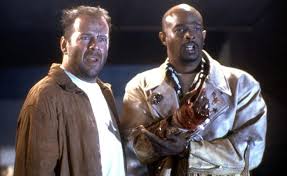When I was younger, I wanted to get along. I really did. I wanted to keep the peace, stay out of trouble, and believe that if I worked hard and did the right thing, people would notice. They don’t. Not in school, not at work, and certainly not in life. I thought silence was maturity, that it showed restraint. What I didn’t realize then was that silence looks a lot like consent, and people mistake consent for weakness.
That’s one of the hardest lessons I’ve ever learned: when you don’t speak up, people assume you agree. And when you stay quiet long enough, you start to disappear.
In Full Circle, I wrote about the moments that define us, the ones that make you realize no one’s coming to save you, no one’s going to hand you what you deserve. You have to ask. You have to demand. Because waiting politely for fairness is a fool’s errand. Fairness doesn’t show up on its own; you have to drag it to the table.
I was never handed anything. Anything I truly wanted, a position, a promotion, a fair shake, I had to fight for. Whether it was trying to get a role at a synagogue youth service as a teenager or earning a raise at work, I learned that “deserving” something and actually getting it are two very different things. Very few people in power reward you just because you worked hard. They reward the people who make noise.
When I worked as a lawyer for a school board, I noticed that everyone was getting bonuses, everyone but me. A few years earlier, I had earned one, so I knew how the system worked. But this time, nothing. I asked why. I was told some nonsense about “budget constraints,” even though the same constraints didn’t apply to the others. So I demanded one. And I got it. Not because they suddenly recognized my value, but because I didn’t let it go.
It wasn’t the money that mattered; it was the principle. You either set the tone for how people treat you, or they’ll set it for you.
The same thing happened later at my synagogue. A friend of mine, a nice person, but not qualified, was about to be handed a paid position she wasn’t entitled to. Everyone else stayed quiet because it was easier. I didn’t. I spoke up. Because fairness only works when someone enforces it. And more often than not, that “someone” ends up being me.
Then came Oceanside. I watched people on the school board destroy what generations had built, not through malice, but through incompetence and self-interest. Positions were handed out like candy to friends and relatives. Contracts were given to cronies. The schools, and the kids, paid the price. So I spoke up again. Not because it was fun. Not because I wanted attention. But because silence was no longer an option.
And that’s the point I’ve reached in life, I’m fine not getting along if it means standing for something. It’s easy to stay quiet, especially when speaking up makes you the odd one out. But I’ve made my peace with that. I’m not built to look the other way.
Some people call it being difficult. I call it being awake.
The older I get, the more I realize how rare that is. Most people convince themselves that keeping quiet is the smart move, that rocking the boat just makes you a target. But you can’t steer the ship from the passenger seat. You either take the wheel or you drift wherever the current takes you.
That’s why I still believe in being the last Boy Scout, the one who follows the code when everyone else is cutting corners, the one who speaks when everyone else whispers. It’s lonely sometimes, but integrity often is.
I don’t regret the times I spoke up, even when it cost me something. What I regret are the moments I didn’t. Because the truth is, every time you swallow your voice, you give away a little piece of yourself. And if you do that long enough, there’s not much left to defend.
So no, I don’t go along to get along anymore. I don’t wait for fairness or hope someone notices the work. I ask. I push. I demand. Not because I’m angry, because I’ve seen what happens when you don’t.
The Boy Scout in me still believes in doing the right thing. The lawyer in me knows you sometimes have to fight for it. And the older, wiser version of me — the one who’s been around long enough to see how things really work, knows this: getting along is overrated. Standing up is everything.
Because in the end, I’d rather be remembered for making noise than for staying quiet while everything around me went wrong.







